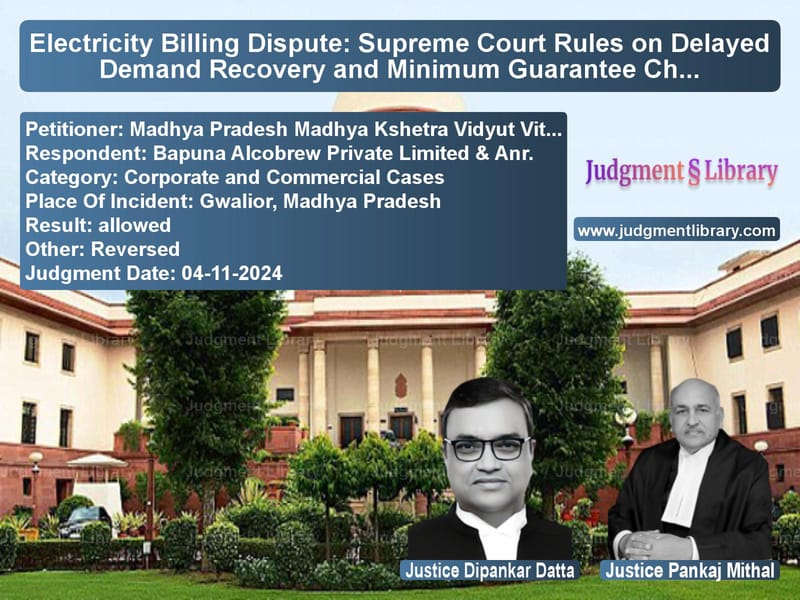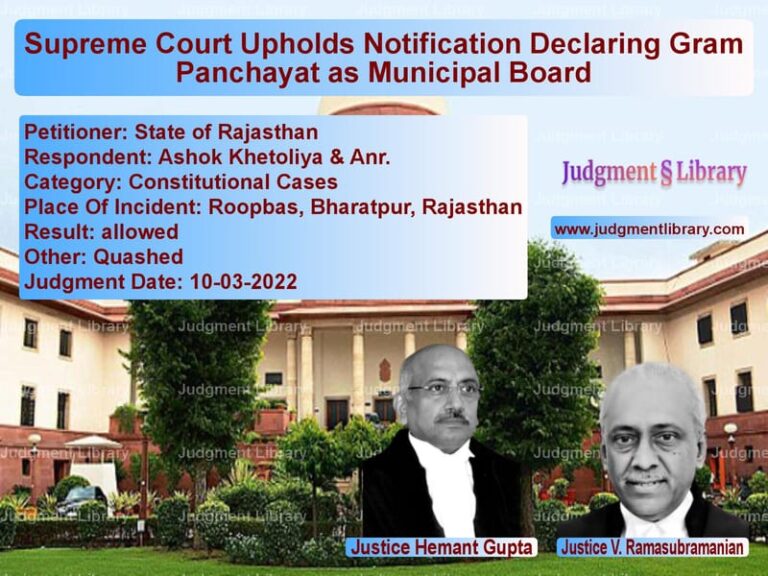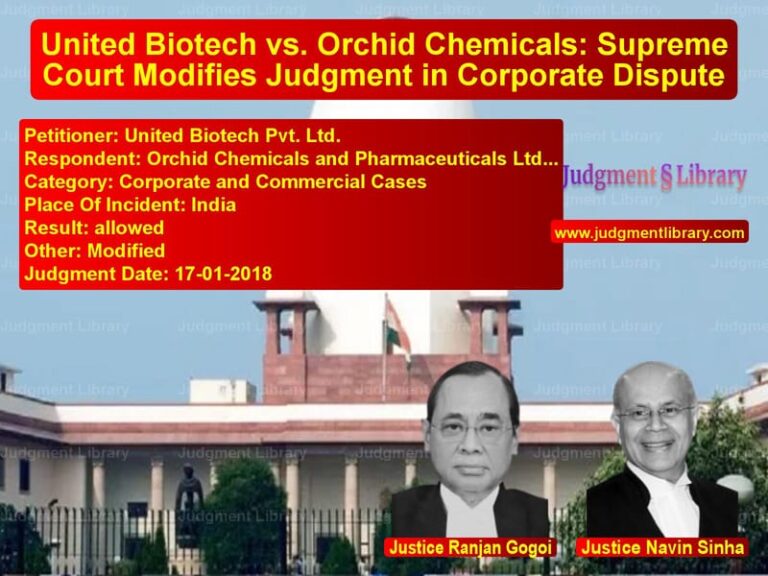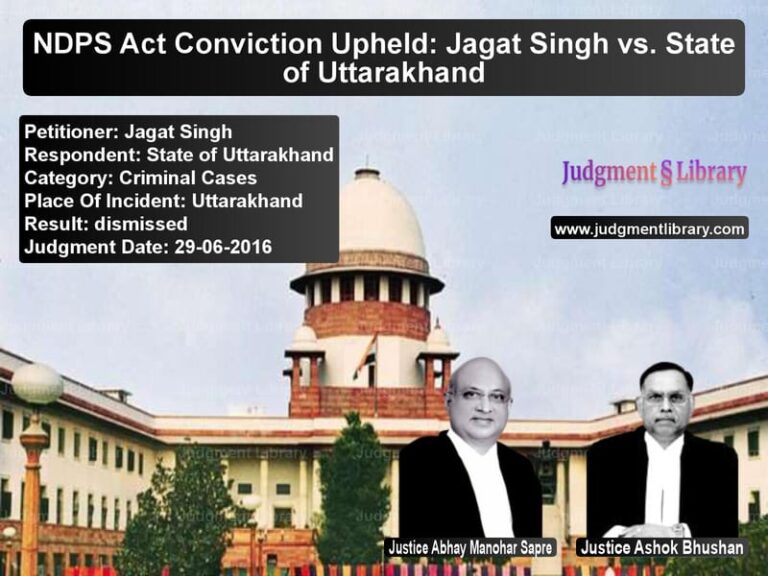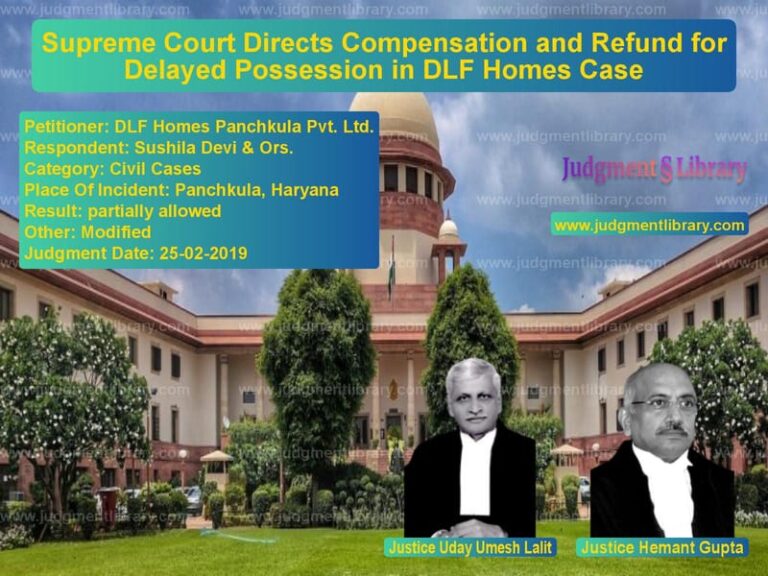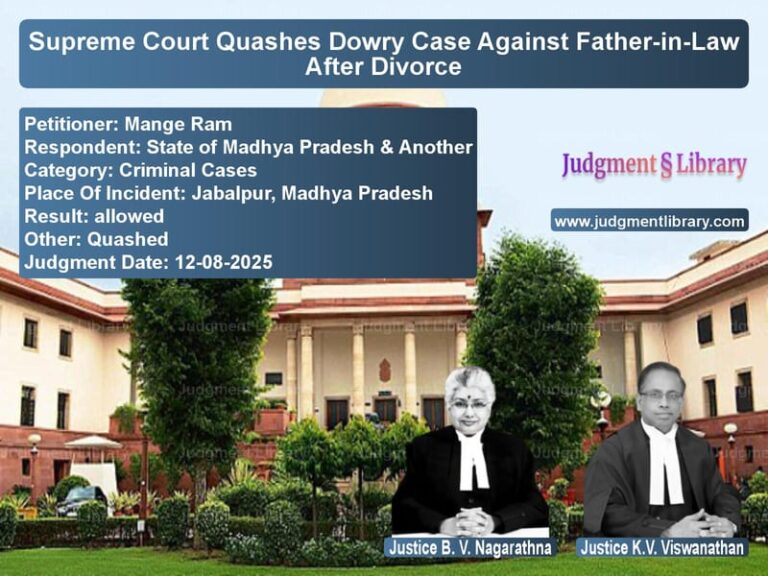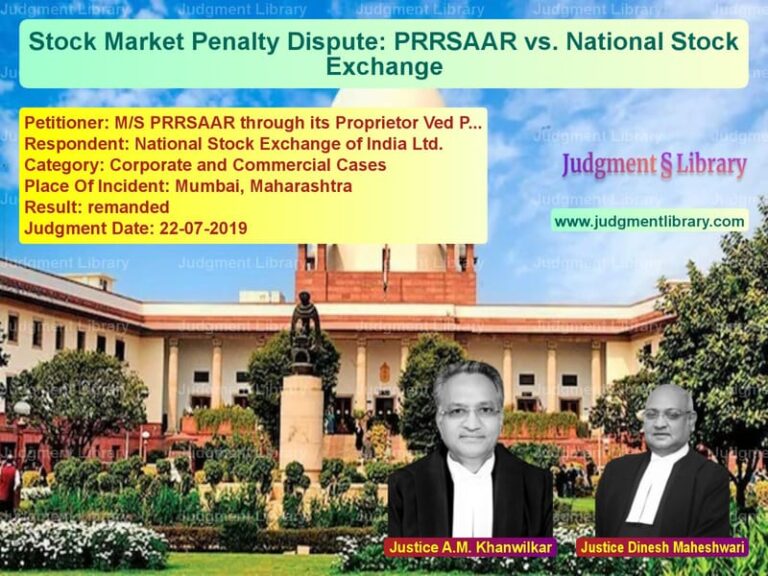Electricity Billing Dispute: Supreme Court Rules on Delayed Demand Recovery and Minimum Guarantee Charges
The case of Madhya Pradesh Madhya Kshetra Vidyut Vitran Company Limited & Ors. vs. Bapuna Alcobrew Private Limited & Anr. revolves around a prolonged dispute concerning electricity billing, specifically regarding the recovery of minimum guarantee charges and the applicability of limitation laws on delayed demand notices. The Supreme Court’s verdict in this case provides significant legal clarity on the rights of electricity providers to recover dues and the applicability of statutory limitations on such recoveries.
Background of the Case
The dispute originated from an electricity supply agreement between the Madhya Pradesh electricity distribution utility and Bapuna Alcobrew Pvt. Ltd., an alcohol manufacturing company. Over the years, supplementary agreements increased the contracted power supply to the respondent’s unit in Gwalior.
A crucial point of contention arose when the company sought permission to install an 807 kVA biogas turbo generator (TG set) for captive use. The electricity board granted conditional permission in 1996, specifying that the generator should not operate in parallel with the main power supply and that the company must maintain a minimum guaranteed monthly consumption based on a prescribed load factor.
Read also: https://judgmentlibrary.com/legal-implications-of-the-byjus-insolvency-case-a-supreme-court-review/
Cancellation of Generator Permission and Legal Battle
In 2000, the electricity board alleged that the company was running its TG set in parallel with the main supply, violating the agreement. Consequently, a notice was issued canceling the generator’s permission. The company challenged this in the High Court, which granted an interim stay on the cancellation, conditional on the company depositing the minimum guarantee charges.
Billing Dispute and Demand Notices
During this period, the electricity board issued multiple notices demanding payment for unmet minimum guarantee consumption:
- First Show Cause Notice (2000): Raised a demand of Rs. 70.5 lakh, citing the company’s failure to meet the minimum consumption.
- High Court’s Interim Order (2001): Held that the company was liable to pay the charges regardless of actual consumption.
- Withdrawal of Writ Petition (2006): The company withdrew its case after a state policy change that no longer required permission for generators.
- Second Show Cause Notice (2009): Revived the Rs. 70.5 lakh demand, prompting a new writ petition.
Key Legal Issues
The case raised the following legal questions:
- Can an electricity board recover dues after a long delay?
- Does the Electricity Act, 2003, impose a limitation period on such recoveries?
- Was the company’s liability to pay the minimum guarantee charges legally justified?
High Court’s Decision
The Madhya Pradesh High Court ruled in favor of the company, holding that:
- The electricity board’s demand was time-barred under Section 56(2) of the Electricity Act, 2003, which prescribes a two-year limitation for recovering dues.
- The board failed to fulfill its duty to supply the guaranteed electricity.
- The revised demand in 2009 was beyond the limitation period and therefore invalid.
Supreme Court’s Analysis
The Supreme Court overturned the High Court’s ruling, addressing key legal points:
1. Limitation on Recovery of Dues
The Court held that Section 56(2) of the Electricity Act, 2003, which prescribes a two-year limitation, does not apply to liabilities incurred under previous laws. It cited past judgments affirming that liabilities arising before the 2003 Act remain recoverable.
Read also: https://judgmentlibrary.com/supreme-court-upholds-nclats-order-in-uco-bank-loan-default-case/
“As settled by this Court, section 185(5) of the 2003 Act read with section 6 of the General Clauses Act, 1897, leads to the inescapable conclusion that the limitation period of two (2) years prescribed for recovery of dues under section 56 of the 2003 Act applies only to liabilities arising under the 2003 Act, and not prior to its enforcement.”
2. Company’s Liability for Minimum Guarantee Charges
The Supreme Court emphasized that the company had agreed to the minimum guarantee clause in its contract. Therefore, its obligation to pay the charges was valid, irrespective of whether the power was fully utilized.
3. Right of the Electricity Board to Recover Dues
The Court clarified that under the Indian Electricity Act, 1910 (applicable at the time), there was no statutory limitation on recovery. The liability continued to exist, and the board was justified in issuing demand notices.
4. Issue Estoppel Against the Company
The Court noted that the company had unsuccessfully challenged the first demand notice in 2001. The principle of issue estoppel prevented it from relitigating the same issue in 2009.
“The issue of liability accruing to the first respondent for non-payment of minimum guarantee charges had been decided previously and such decision, not being subjected to any appeal, had attained finality in the eyes of law, estopping the first respondent from reagitating the issue.”
Supreme Court’s Verdict
The Supreme Court ruled in favor of the electricity board, holding that:
- The High Court erred in applying a two-year limitation.
- The company was liable for minimum guarantee charges.
- The board had the legal right to recover outstanding dues.
- The company’s challenge was barred by issue estoppel.
Accordingly, the Supreme Court reinstated the demand and dismissed the company’s appeal.
Conclusion
This judgment has significant implications for electricity billing disputes:
- It clarifies that past liabilities remain recoverable despite changes in statutory limitation periods.
- Consumers must honor contractual obligations, including minimum guarantee clauses.
- Electricity providers have legal recourse to recover unpaid dues, even after a delay.
The ruling strengthens the legal position of electricity distribution companies while emphasizing the importance of timely payment obligations for consumers.
Petitioner Name: Madhya Pradesh Madhya Kshetra Vidyut Vitran Company Limited & Ors..Respondent Name: Bapuna Alcobrew Private Limited & Anr..Judgment By: Justice Dipankar Datta, Justice Pankaj Mithal.Place Of Incident: Gwalior, Madhya Pradesh.Judgment Date: 04-11-2024.
Don’t miss out on the full details! Download the complete judgment in PDF format below and gain valuable insights instantly!
Download Judgment: madhya-pradesh-madhy-vs-bapuna-alcobrew-priv-supreme-court-of-india-judgment-dated-04-11-2024.pdf
Directly Download Judgment: Directly download this Judgment
See all petitions in Contract Disputes
See all petitions in Company Law
See all petitions in Corporate Compliance
See all petitions in Judgment by Dipankar Datta
See all petitions in Judgment by Pankaj Mithal
See all petitions in allowed
See all petitions in Reversed
See all petitions in supreme court of India judgments November 2024
See all petitions in 2024 judgments
See all posts in Corporate and Commercial Cases Category
See all allowed petitions in Corporate and Commercial Cases Category
See all Dismissed petitions in Corporate and Commercial Cases Category
See all partially allowed petitions in Corporate and Commercial Cases Category

